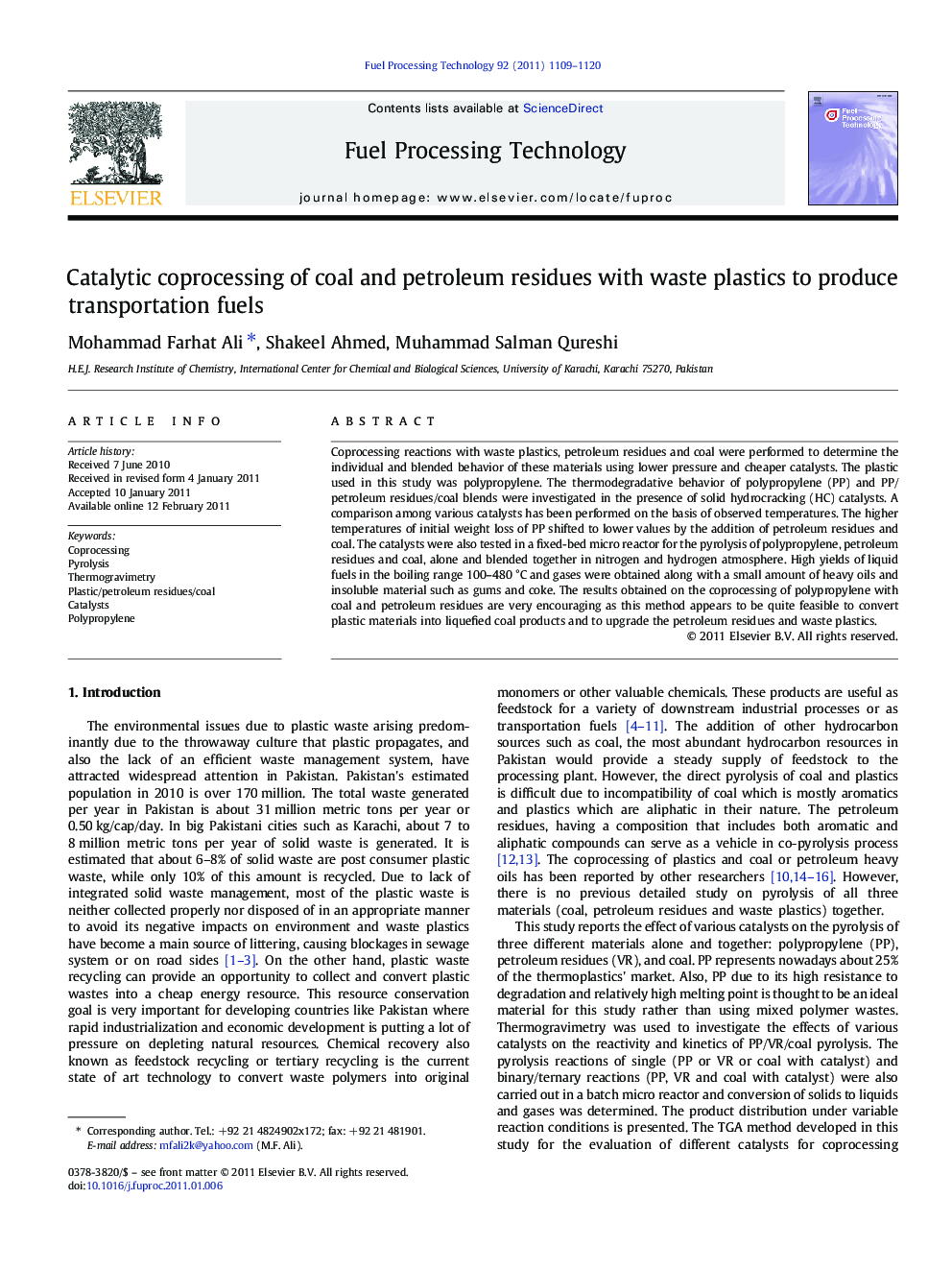| Article ID | Journal | Published Year | Pages | File Type |
|---|---|---|---|---|
| 10274851 | Fuel Processing Technology | 2011 | 12 Pages |
Abstract
Coprocessing reactions with waste plastics, petroleum residues and coal were performed to determine the individual and blended behavior of these materials using lower pressure and cheaper catalysts. The plastic used in this study was polypropylene. The thermodegradative behavior of polypropylene (PP) and PP/petroleum residues/coal blends were investigated in the presence of solid hydrocracking (HC) catalysts. A comparison among various catalysts has been performed on the basis of observed temperatures. The higher temperatures of initial weight loss of PP shifted to lower values by the addition of petroleum residues and coal. The catalysts were also tested in a fixed-bed micro reactor for the pyrolysis of polypropylene, petroleum residues and coal, alone and blended together in nitrogen and hydrogen atmosphere. High yields of liquid fuels in the boiling range 100-480 °C and gases were obtained along with a small amount of heavy oils and insoluble material such as gums and coke. The results obtained on the coprocessing of polypropylene with coal and petroleum residues are very encouraging as this method appears to be quite feasible to convert plastic materials into liquefied coal products and to upgrade the petroleum residues and waste plastics.
Related Topics
Physical Sciences and Engineering
Chemical Engineering
Chemical Engineering (General)
Authors
Mohammad Farhat Ali, Shakeel Ahmed, Muhammad Salman Qureshi,
